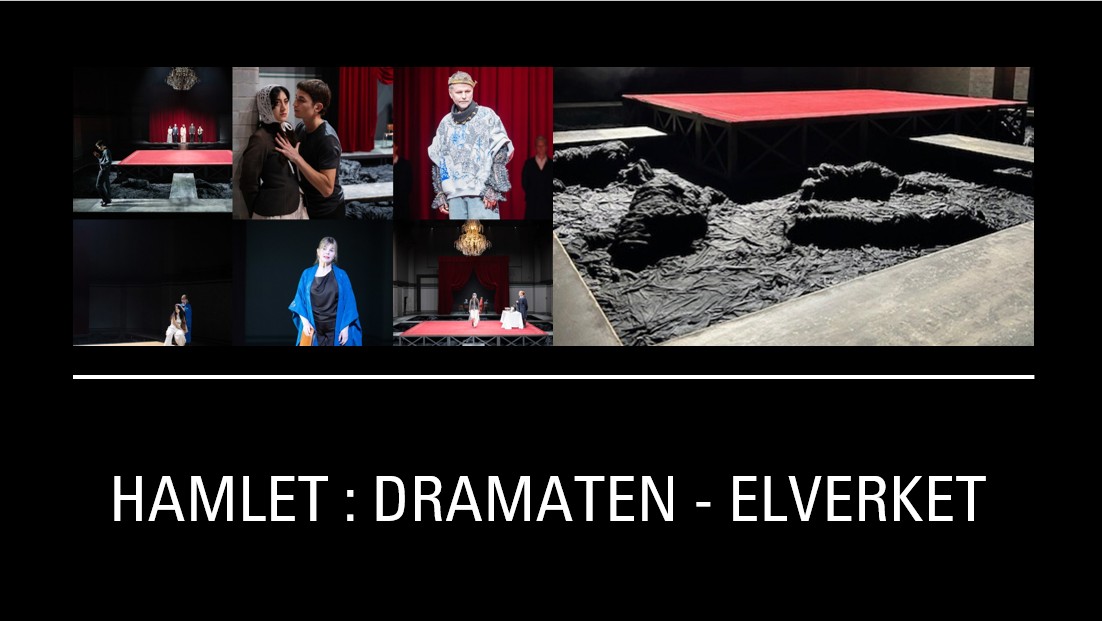La partie anglaise du BFI Trilingue est le cours ACL (Approfondissement Culturel et Linguistique) où les élèves étudient la littérature anglophone. L’enseignement inclut toujours une pièce de Shakespeare et un roman pour l’épreuve écrite du Baccalauréat et deux autres œuvres (normalement des romans) sur un thématique spécifique, par exemple le gothique ou la dystopie, pour l’épreuve orale du Baccalauréat.
Cette année scolaire, l’œuvre de Shakespeare est Hamlet, ‘the theatre play of all theatre plays’. Quelle chance pour nous que Dramaten Elverket monte Hamlet cet automne ! Travailler sur un texte qui a 400 ans et qui est d’une variété (Early Modern English) plus compliquée que l’anglais de nos jours est une expérience très différente que de regarder une représentation théâtrale où l’action et la langue se mêlent devant nos yeux et produisent cette histoire d’un prince mélancolique qui n’arrive pas à agir avant qu’il ne soit trop tard.
Les Tles ont déjà étudié le texte entier et elles ont aussi regardé plusieurs adaptations filmiques, tandis que les 1res viennent de commencer leurs études de Shakespeare et n’ont lu que les deux premières scènes du premier acte (l’apparition d’un fantôme muet et l’état politique du Danemark).
Les élèves étaient de très bonne humeur déjà quand nous avons quitté l’école et cette bonne ambiance est restée alors même que la pièce est très longue : trois heures et demie. Tous étaient d’accord que cette visite théâtrale a aidé à approfondir leur compréhension de Hamlet et j’espère que cela va durer et servir comme inspiration dans le travail sur Shakespeare qui nous attend.
Ci-dessous quelques photos et réflexions des Tles et 1res sur cette expérience.
Dr. Anette Campbell




Citations (en anglais) des reflexions des élèves :
Joshua:
I really enjoyed the performance as a whole and am glad that I could come. This adaptation gave me a new understanding of the characters that I don’t think I would’ve gotten from just reading the play.
Nur:
The stage was nicely suited to the play and I liked that they dismantled it as they went. This offered opportunities for multiple scenes being played at the front and the back of the stage simultaneously.
I also got a new insight into the play from this adaptation. I liked how they emphasized the circular aspect of the play. In the beginning, they followed the original text to mix celebration and mourning at the Danish court. In the end they changed the plot to finish with the mourning of Hamlet, Laertes, Ophelia, and the celebration of the possibility of new beginnings. It’s a very ironic way to criticize the unfortunate closing of Elverket after this last play.
Artem:
Was the story altered? Yes. Was it immersive and terrifying? Yes. Was it loud and surprising? Yes. Does this make the play worse? Absolutely not. This play was formidable.
It makes you think, is madness really to “lose it” or is it the revelation that you cannot do anything and that everyone is against you?
Joséphine:
I think the first scene is necessary and I was disappointed when they took it out.
My favourite character was Polonius because he was funny and I liked what the actor did to the character.
I really liked the play and the atmosphere and it was fun to see a new interpretation.
Liv:
What I found really interesting was that although the play was in Swedish I could identify and recognize the exact lines they would say. The Swedish translation was quite accurate.
Although I was at first suspicious of the changes and the choices the director made (such as merging Horatio’s character with Rosencrantz and Guildenstern), I was surprised at how these changes didn’t actually bother me as much as I thought.
Découvrez en vidéo le Baccalauréat Français International (BFI), un diplôme trilingue exigeant et valorisé, à travers les témoignages d’élèves, d’enseignants et de membres de la direction du LFSL :


